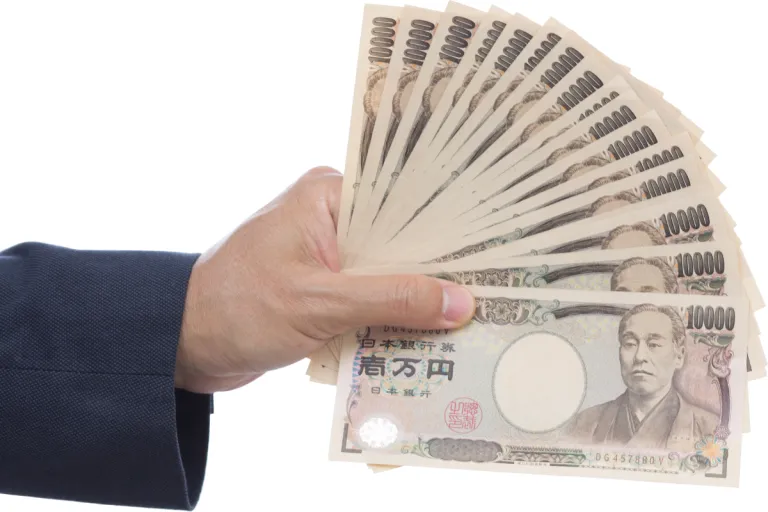Not just Boracay...
6 Things You Can’t Bring Into Japan For Muslim Travellers

Japan is a dream destination for many, from the dazzling lights of Tokyo and the ancient temples of Kyoto to halal wagyu and hidden prayer rooms in airports. But before packing that suitcase, every traveller (especially those flying in from Southeast Asia or the Middle East) should know: Japan takes its customs rules very seriously.
Whether it's your first visit or your fifth, here are six things you can’t bring into Japan – or at least not without some paperwork. Muslim travellers should take note too, especially when packing familiar food or gifts for friends. Let’s break it down.
1. Cash over 1 million yen? Declare it!
 Image credit: kenruen | Canva Pro
Image credit: kenruen | Canva Pro
Yes, you can bring large amounts of money – including foreign currency – into Japan, but if the total value is over 1 million yen (about USD 6,200), you must declare it at customs.
This is important for travellers carrying Zakat money, business funds, or even generous budgets for long family holidays. Not declaring it could result in the cash being seized or penalties imposed.
HalalZilla tip: Look for the customs declaration form at the airport and tick the box for carrying large sums of cash.
2. Gold above 1kg
 Image credit: Arttanja | Canva Pro
Image credit: Arttanja | Canva Pro
Bringing a gold bangle for your niece’s wedding? No problem. But carrying more than 1kg of gold (especially in pure form) is a different story.
Since 2017, Japan has taxed undeclared gold imports to prevent smuggling. Anything above 1kg must be declared upon arrival, or you risk it being confiscated.
HalalZilla tip: If you’re bringing zakat-eligible gold or jewellery as a gift, make sure to weigh and declare it appropriately.
3. Leave the fruits, veggies, and meat behind
 Image credit: margouillatphotos | Canva Pro
Image credit: margouillatphotos | Canva Pro
This is where many travellers, especially those flying from countries with rich food cultures, get caught off guard.
Bringing fresh fruits, vegetables, or meat (including processed or dried meat like beef jerky or even homemade sambal with meat) is strictly prohibited unless you have an official phytosanitary certificate. That includes things like mangos from Malaysia, dates with meat stuffing, or your mum’s homemade beef rendang.
Why? Japan protects its agriculture from pests and diseases.
HalalZilla tip: Don’t pack perishable halal meat or fresh produce. You’ll find halal groceries in Japan’s major cities – and even halal-certified wagyu if you're lucky!
4. Can you bring rice?
 Image credit: Chaded Panichsri | Canva Pro
Image credit: Chaded Panichsri | Canva Pro
Rice is a staple in many Muslim households, but if you're thinking of packing a few kilos of basmati or jasmine rice “just in case,” here's what you should know:
Bringing rice into Japan is allowed in small, personal-use amounts. However, anything large-scale (think over 100kg/year) is considered a commercial import and requires approval. And yes, you still need to declare it at customs.
HalalZilla tip: Japan has its own rice, but halal rice brands can also be found in Asian supermarkets across Tokyo, Osaka, and Fukuoka.
5. Selling something in Japan? Customs says NO!
 Image credit: Joko Harismoyo | Canva Pro
Image credit: Joko Harismoyo | Canva Pro
Planning to resell items in Japan – like perfumes, scarves, or souvenirs from your home country? Unless you're a licensed importer, don’t bring in items meant for commercial purposes.
Japan’s customs are clear: anything not for personal use (especially items in bulk or with a resale value) needs proper documentation and could be taxed or seized.
HalalZilla tip: Gifts are fine, but if you're bringing 30 bottles of oud or 50 hijabs, it’ll raise red flags.
6. More than 200 cigarettes? Declare or pay duty
 Image credit: planet_fox | Canva Pro
Image credit: planet_fox | Canva Pro
For smokers, the rule is simple: the duty-free limit is 200 cigarettes, 50 cigars, or 250g of tobacco. Anything over that must be declared and may be subject to import tax.
HalalZilla tip: Even if you don’t smoke, avoid carrying cigarettes for relatives or friends unless you know the limit.
Final thoughts: Better safe than sorry
 Image credit: Evgeny Tchebotarev | Canva Pro
Image credit: Evgeny Tchebotarev | Canva Pro
Japan is known for being orderly, clean, and efficient – and that starts at the airport. While it might seem tempting to pack some comfort foods or extra gifts, it’s best to play by the rules. Not only will it save you time at customs, but it also ensures your trip starts smoothly.
HalalZilla tip: Japan is increasingly Muslim-friendly. From halal ramen shops to prayer spaces at airports and shopping malls, you’re in for a treat. Just make sure your suitcase doesn’t include anything on this list!
Published at
About Author
Aimi Zulkiflee
Subscribe our Newsletter
Get our weekly tips and travel news!
Recommended Articles
10 Best Halal-Friendly Destinations in The Philippines for Muslim Travellers 10 Best Places for Muslim Travellers to See Tulip Festivals in 2025 Fun Fact: Tulips didn’t actually come from the Netherlands but Türkiye!
10 Halal Anime Food Guide for Muslim Travellers in Japan Muslim-friendly versions of popular anime dishes across Japan!
Top 10 Popular Muslim-Friendly Destinations to Visit in 2025 Our schedules are packed, buddies!
10 Halal Restaurants in Bangkok to Satisfy Your Thai Cravings From Korean-style BBQ and Punjabi curries to award-winning shrimp Pad Thai, take your pick from these amazing Halal restaurants in Bangkok.
Latest Articles
Best Places to Stay in Kyoto 2026 : 10 Best Ryokan Hotels with Traditional Japanese Style the ultimate way to feel Kyoto’s old-world charm
Taiwan Cherry Blossom Guide 2026: Top 10 Spots, Forecast, & Hot Springs cherry blossom season is back!
The Ultimate Guide to Nakameguro Cherry Blossom Season: Tokyo’s Iconic Pink Wonderland must-visit when you're in Tokyo during sakura season!
The Ultimate Guide to the Kawazu Cherry Blossom Festival You don’t have to wait that long to see Japan turn into a pink wonderland!
10 Most Instagrammable and Soul-Soothing Resorts in Yogyakarta for Your 2026 Retreat Experience luxury and serenity.

